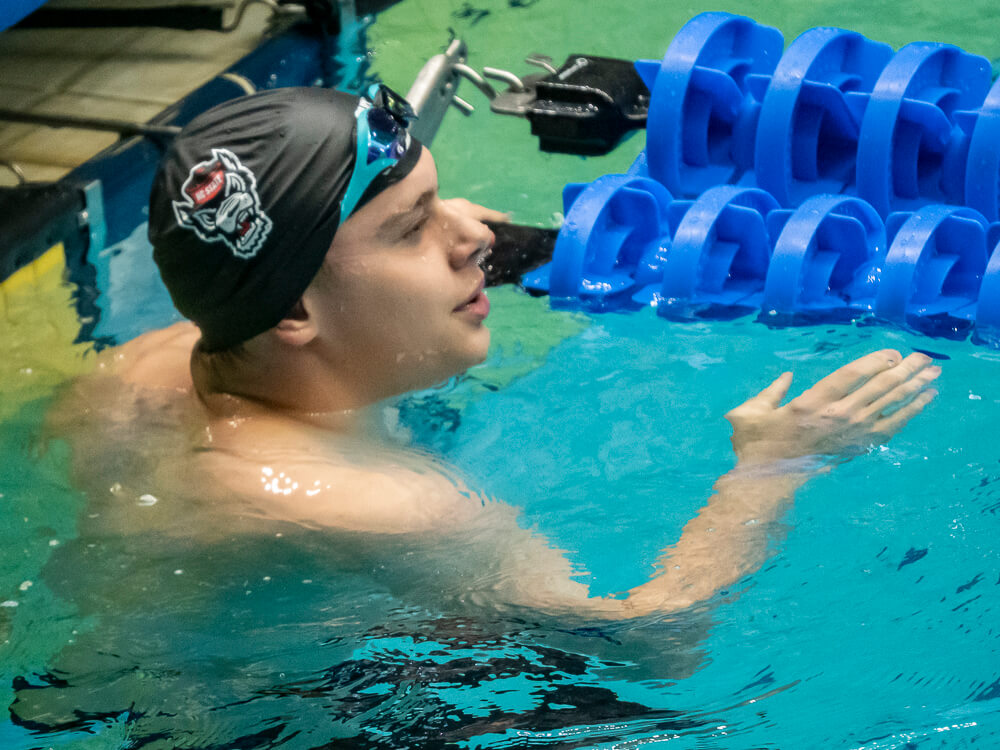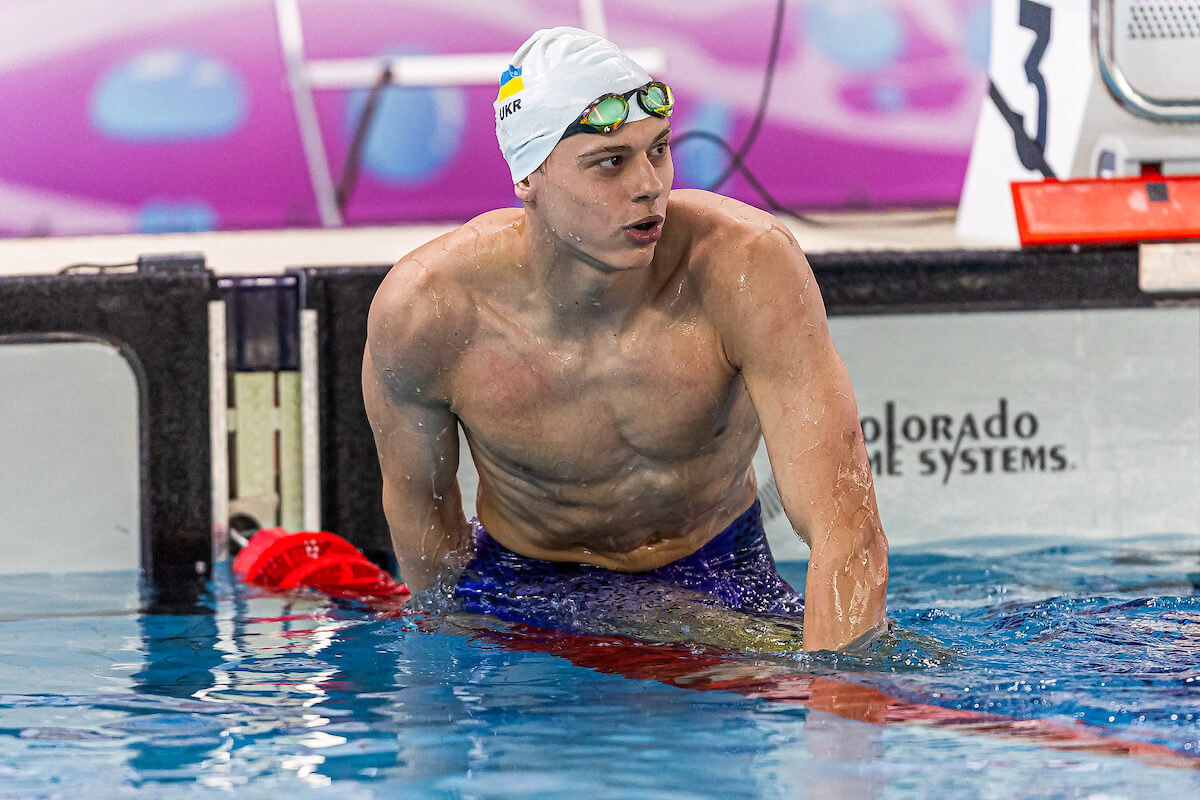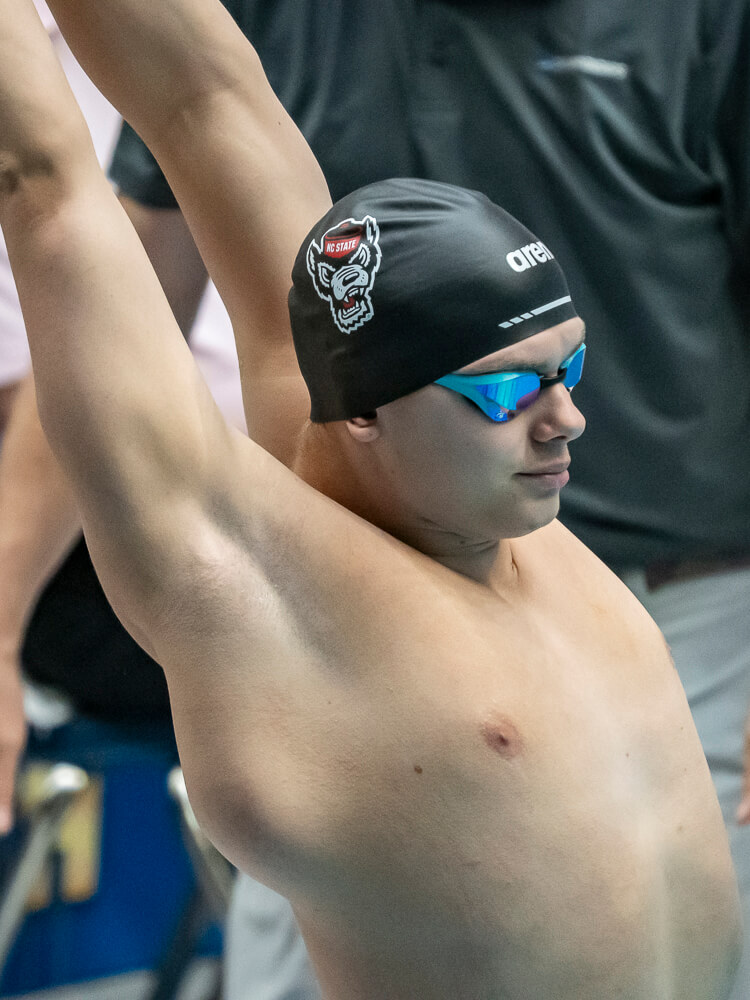Year of Change has Ukraine’s Oleksandr Zheltiakov Remotivated at NC State

Year of Change has Ukraine’s Oleksandr Zheltiakov Remotivated at NC State
Even without the specter of war hovering over his homeland, 2024 was going to be a year of change for Oleksandr Zheltiakov.
The 18-year-old Ukrainian knew a busy summer beckoned, one he’d positioned himself for long before bursting onto the global scene in the fall of 2023 with two gold medals and a silver at the World Junior Championships. Representing Ukraine at the Paris Olympics was the main objective in the middle of the summer. Before came an oddly placed European Championships in Belgrade. After came the decision of relocating to the United States to further his career.

Oleksandr Zheltiakov: Photo Courtesy: Istvan Derencsenyi/LEN
In between would be few opportunities to reflect and recalibrate, a slowness that Russia’s two-year assault on his homeland has already reduced to near nothing.
So by the time Zheltiakov reached the NCAA Championships last month, his first as a member of NC State, the 19-year-old expressed an understandable degree of weariness.
“Last year was incredible, with Europeans and Olympics,” he said. “Not everything went like we we’re planning with my coach from Ukraine, but it’s just experience for me. And we are moving only up. So I’m here.”
His time in Raleigh has provided a reset. Away from his hometown of Dnipro, however difficult the distance, has allowed him to try new things and focus on his swimming anew. It’s brought a new beginning, with the Paris Games as an end point for a busy 2024 season.
Zheltiakov built on last year’s World Juniors performance in Israel by swimming at the 2024 World Aquatics Championships in Doha. The spring brought him to Belgrade, where he became the European champion in the 200 backstroke, at the same facility where he’d won two gold and one silver in his third European Junior Championship a summer earlier. He set the national record in the 200 back at 1:55.39 in Belgrade, and threatened his 50 and 100 back national mark set in Natanya.
Belgrade was part of a summer of travel, the Ukrainians leaving the country to train in May in France and then in Spain ahead of the Paris Games. His first Olympics didn’t quite go as he’d hoped, finishing 24th in the 100 back and 20th in the 200, the latter more than three seconds shy of his best time.
That was part of the reason why Zheltiakov took “months off, totally off” from swimming once he returned home. A chance to swim in college would be the motivator he needed to restart his career after the Olympics high. By August, he knew that would be at NC State, though it took the ensuing semester for him to prepare logistics and paperwork before arriving in January.
The transition to NCAA swimming has brought many of the common challenges to Zheltiakov as any European – the frequent racing, the short-course yard, the organizational blending of academics and athletics. But he’s taken to it pretty well.

Oleksandr Zheltiakov; Photo Courtesy: Peter H. Bick
“ACCs, NCAAs and all short-course meets, it’s something new,” he said. “When you swim, you need to be really confident about everything what you do, because only one mistake and you really do something bad, you can swim bad. It’s new experience, how to be more disciplined and get ready to do everything like now. When I come here, I have a meet every two weeks, because before I moved to the USA, I would have one or two meets in two months. It’s a lot of what I’ve already learned here, so I like these meets.”
Zheltiakov’s first NCAA postseason was up and down. He finished fourth at the ACC Championships in the men’s 200 backstroke and 13th in the 100 back. He entered NCAAs with the ninth seed in the 200 back but didn’t get a second swim, finishing 30th, more than two seconds slower than at ACCs. He was 37th in the 100 back and didn’t get a relay swim at either meet, behind Quintin McCarty in the Wolfpack’s sprint back ranks.
Nothing about living in war is smooth, but Zheltiakov sounds matter of fact about the challenges he faced back home. Though the front of the war grinds closer to Dnipro, his training was relatively unimpacted. He lived and trained at the Meteor facility in his hometown, and while air raid alerts became common, it was mostly spared in the destructive conflict save for the odd missile attack inflicting minor damage.
Zheltiakov’s nonchalance speaks volumes of the adaptation to a state of war. He wanted to stay as close to home as possible while he was in the country, a thought process many Ukrainian elite athletes followed.
Now that he’s far away, his mind often drifts back to home, though the environment in Raleigh is a potent distraction to keep him focused on swimming.
“I try not to think about it, but I always talk with my family every day, try to just be with them, mentally and help them with everything, with money or if they need anything,” he said. “My family does the same for me. And it’s really hard, and it’s really annoying, because you really need to be concentrating every day, on how is the situation in Ukraine and my city, because my city is so close to the front now.”




.png)